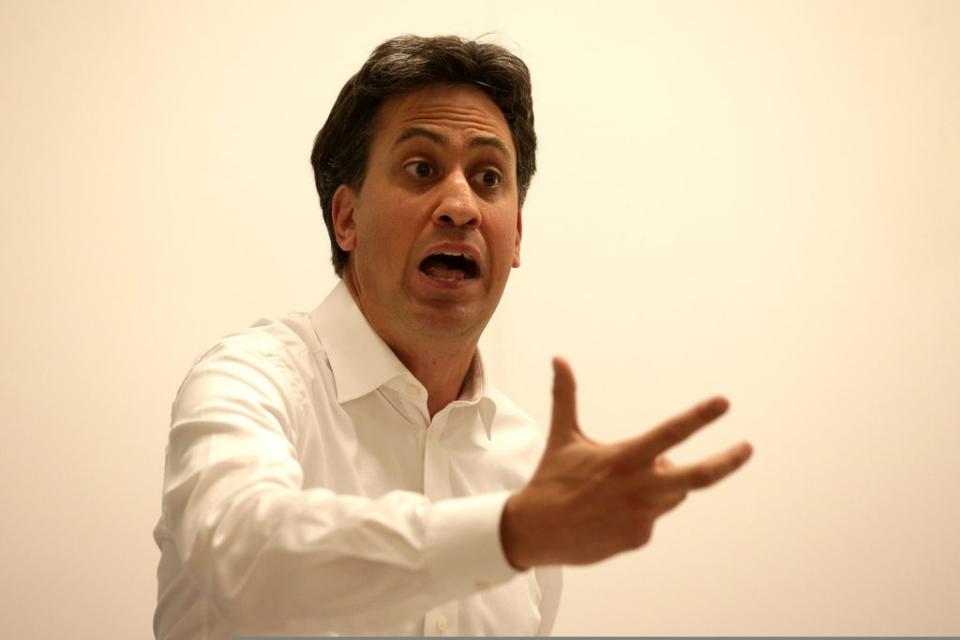New £3bn plan to save steel industry shows Labour ‘going big’ Joe Biden-style, Ed Miliband says

A new £3bn plan to “save” the steel industry by making it carbon-neutral is proof that Labour is ready to follow Joe Biden’s big spending plans, Ed Miliband says.
Announcing the ten-year investment programme, the shadow business secretary said it was essential to give the embattled industry a long term future after years of Conservative neglect.
But he also told The Independent, at the start of Labour’s annual conference: “We need a Biden-style green investment, going big, and this is the first instalment of that.
“We are not willing to allow what happened to the coal mines in the 1980s happen to our steel industry. This is a litmus test for the green transition.”
Climate change advisers have concluded that “clean steelmaking” is within reach with proper investment, but the shadow business secretary accused the Tories of failing to try.
None of more than 20 European projects to demonstrate green processing is in the UK and a promised £250m government fund is yet to appear, he said.
Labour’s new plans would fund 50 per cent of the expected £6bn cost of the switch to making the industry close to carbon-neutral.
“Our steel industry will not exist unless we help it to get through this green transition. If we just leave it to the market it is not going to happen,” Mr Miliband warned.
He accused the Conservatives of not only failing to invest in the transition, but of failing to protect steelmakers from cheap imports that are building schools and hospitals.
“If you want to represent Red Wall seats, as the Tories claim they do, you have to have an answer on the future for steel,” he added.
The announcement has been welcomed by both the steel industry and green campaigners, as producers battle fierce international competition and high domestic costs.
“Making clean steel is significantly more energy intensive and the cost to the sector of bringing it to market will be huge. But, it is necessary and essential to the future of the planet,” said UK Steel director general Gareth Stace.
Roz Bullied, deputy policy director at Green Alliance, said: “By setting a clear decarbonisation goal and investing at scale in research and development in clean, green steel, the UK can protect thousands of well-paid quality jobs, and create economic opportunities in areas of high unemployment.”
In the interview, Mr Miliband declined to be drawn on the setback for Keir Starmer, as he was forced to shelve plans to ditch the leadership voting rules that elected Jeremy Corbyn.
On whether Labour still backs taking energy firms into public ownership – a controversy the Labour leader omitted from a 11,500-word plan for the future – Mr Miliband suggested the issue is yet to be decided.
“We do believe there is an important role for public ownership. The precise form of that will be set out at the time of the manifesto,” he said.

 Yahoo News
Yahoo News 